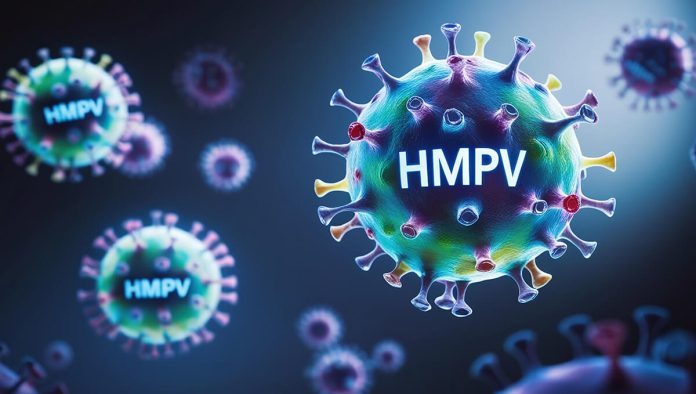Dr. Akpan Nse, the Director of Port Health Services, has announced that all Points of Entry (PoEs) across Nigeria’s 36 states and the Federal Capital Territory (FCT) have been alerted about the Human Metapneumovirus (HMPV), with Lagos identified as a top priority.
In an exclusive interview with The PUNCH, Dr. Nse confirmed that the Port Health Services had already initiated mass surveillance across the country.
“We have notified every point of entry, and we did this as early as this week. In Nigeria, Port Health operates in all states of the federation, so we have informed all 36 states and the FCT. While some states may not have seaports or airports, they all have land borders. Travellers could come from these borders, and we have ensured they are all on alert. We’ve sent notices to all the states, and we have Port Health officers present and working across the country,” Nse said.
The director explained that certain states were prioritised due to higher international travel traffic, particularly Lagos, Abuja, Enugu, Kano, and Port Harcourt. He noted that Lagos is a critical point for air, sea, and land arrivals.
- MTN, Airtel, others to increase tariff but not by 100% – FG
- 2023 AFCON Meme, Other Things to Know About Super Eagles’ New Coach
“Lagos is our number one priority. People come by sea, air, and land. The borders there must be closely monitored, as the virus could easily enter from neighbouring regions. We are working day and night to ensure we screen everyone entering,” he added.
Nse further stressed the need for cross-border communication and collaboration among health officers to effectively handle the situation. “We must ensure our Port Health Officers at border posts are interacting with their counterparts at other borders, sharing information on case definitions, among other things,” he said.
HMPV is a respiratory virus that can cause illnesses ranging from mild cold-like symptoms to severe respiratory infections, especially in young children, older adults, and those with weakened immune systems. There is currently no specific antiviral treatment or vaccine for the virus. Supportive care, including rest, hydration, and fever management, remains the primary approach to recovery.
Symptoms of HMPV include cough, fever, nasal congestion, shortness of breath, wheezing, bronchitis, or pneumonia, particularly in vulnerable populations such as young children, the elderly, or those with low immunity.
Cases of HMPV have been reported globally, including in China, Hong Kong, India, Malaysia, the United Kingdom, and Kazakhstan.
Dr. Nse emphasised the importance of cooperation and mutual respect in the fight against the virus, urging people not to challenge or undermine Port Health officials’ authority. He stressed that even high-status individuals should not bypass necessary procedures, noting that fairness and consideration are vital for everyone involved.
He also highlighted the need for quarantine facilities across all states, with additional centres to be activated based on the severity of the situation. “Every airport has an isolation centre for quarantining individuals, pending transfer to the nearest health facility, whether primary, secondary, or tertiary,” Nse explained.
The Nigerian Centre for Disease Control (NCDC), in a statement signed by its Director-General, Dr. Jide Idris, also addressed the threat of HMPV. The NCDC noted that, following a risk assessment conducted in collaboration with the Federal Ministry of Health and international partners, the risk of HMPV in Nigeria has been classified as moderate. The World Health Organisation (WHO) has not declared HMPV a Public Health Emergency of International Concern.
“On January 6, 2025, the NCDC, alongside the Federal Ministry of Health and partners such as WHO, the U.S. Centres for Disease Control and Prevention (CDC), and the UK Health Security Agency, conducted a dynamic risk assessment for HMPV. The risk was classified as moderate, and this will guide our preparedness and response strategies,” the statement read.
The NCDC confirmed that proactive measures are being taken at all international PoEs to mitigate the potential risk of HMPV transmission through international travel. These include the development of an Entry Implementation Protocol, the identification of quarantine facilities, and the distribution of information materials to raise awareness and provide guidance for both staff and travellers.
Additionally, the National Influenza Sentinel Surveillance sites across Nigeria will monitor Influenza-like Illness and Severe Acute Respiratory Infections, with provisions made to increase testing for HMPV, especially in states with international airports.
“Port Health Services is also enhancing surveillance and laboratory capacity to ensure the timely detection of HMPV,” the NCDC stated.




